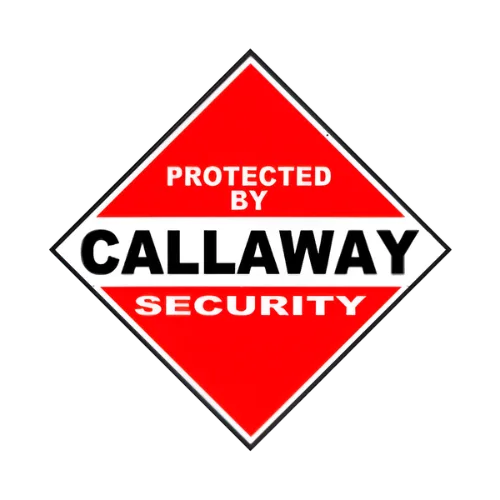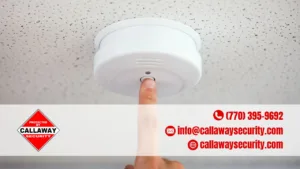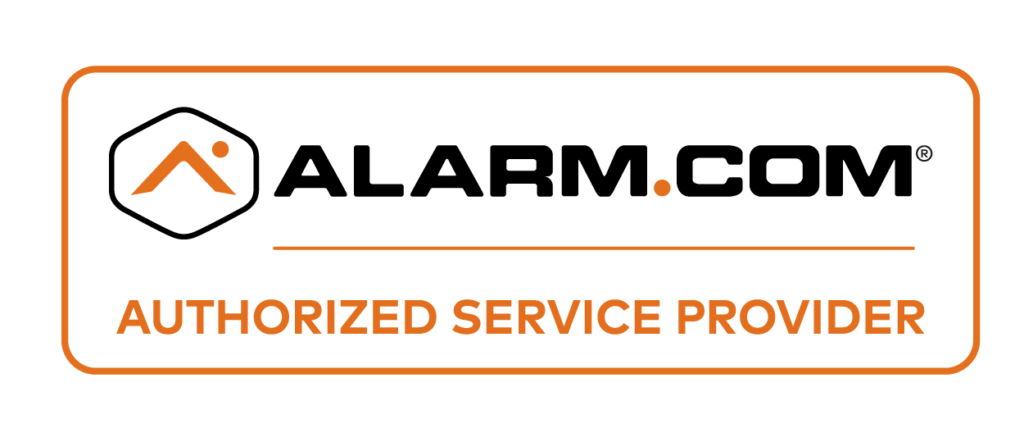Fire safety measures are of utmost importance in both residential and commercial settings. Fires can cause devastating damage to property and can even result in loss of life. It is crucial to understand the importance of fire safety measures and take proactive steps to prevent fires and protect ourselves and our property. This article will provide a comprehensive guide on fire safety measures, including assessing potential fire hazards, installing smoke detectors and fire alarms, creating an evacuation plan, maintaining fire extinguishers and other safety equipment, educating others on fire safety, conducting regular fire drills, storing flammable materials properly, hiring a professional fire safety inspection and maintenance service, and staying up-to-date on fire safety codes and regulations.
Key Takeaways
- Fire safety measures are crucial for protecting lives and property.
- Identifying potential fire hazards in your home or business is the first step in preventing fires.
- Smoke detectors and fire alarms are essential for early detection and warning of fires.
- Creating an evacuation plan and conducting regular fire drills can save lives in the event of a fire.
- Proper maintenance of fire extinguishers and other safety equipment is necessary for their effectiveness.
Understanding the Importance of Fire Safety Measures
Fires can have devastating effects on both individuals and communities. They can cause extensive damage to property, leading to financial loss and emotional distress. In addition to property damage, fires can also result in injuries or even loss of life. The effects of fires can be long-lasting, impacting not only the individuals directly affected but also the surrounding community.
Fire safety measures are crucial in preventing fires and minimizing their impact. By implementing proper fire safety measures, we can reduce the risk of fires occurring in the first place. This includes identifying potential fire hazards, installing smoke detectors and fire alarms, creating an evacuation plan, maintaining fire extinguishers and other safety equipment, educating others on fire safety, conducting regular fire drills, storing flammable materials properly, and staying up-to-date on fire safety codes and regulations.
Assessing Potential Fire Hazards in Your Home or Business
One of the first steps in implementing effective fire safety measures is to assess potential fire hazards in your home or business. Common fire hazards include faulty electrical wiring, overloaded power outlets, flammable materials stored improperly, open flames (such as candles), cooking appliances left unattended, and smoking materials not properly extinguished.
To prevent fires, it is important to take proactive steps to eliminate or minimize these hazards. This can include ensuring that electrical wiring is up to code and not overloaded, using power strips with surge protectors, storing flammable materials in designated areas away from ignition sources, using flameless candles instead of open flames, never leaving cooking appliances unattended, and properly disposing of smoking materials in designated containers.
Installing Smoke Detectors and Fire Alarms
Smoke detectors and fire alarms are essential in alerting individuals to the presence of a fire. They provide early warning, allowing people to evacuate the premises and call for help before the fire spreads. It is important to install smoke detectors and fire alarms in every room of your home or business, as well as in hallways and common areas.
When installing smoke detectors and fire alarms, it is crucial to follow the manufacturer’s instructions and guidelines. They should be installed on the ceiling or high on the wall, away from corners and vents. It is recommended to test smoke detectors and fire alarms regularly to ensure they are functioning properly. Batteries should be replaced at least once a year, or as recommended by the manufacturer.
Creating an Evacuation Plan for Your Home or Business
Having an evacuation plan is crucial in ensuring the safety of individuals during a fire emergency. An effective evacuation plan should include designated escape routes, meeting points outside the building, and a clear communication plan.
When creating an evacuation plan, it is important to consider the layout of your home or business. Identify primary and secondary escape routes from each room, ensuring that they are easily accessible and free from obstructions. Designate a meeting point outside the building where everyone can gather after evacuating. This will help ensure that everyone is accounted for and can be quickly identified by emergency responders.
Communicate the evacuation plan to all family members or employees and conduct regular drills to practice the plan. This will help familiarize everyone with the escape routes and ensure a quick and efficient evacuation in the event of a fire.
Maintaining Fire Extinguishers and Other Safety Equipment
Fire extinguishers and other safety equipment play a crucial role in preventing fires from spreading and causing further damage. It is important to have fire extinguishers readily available in key areas of your home or business, such as the kitchen, garage, and near potential fire hazards.
To ensure that fire extinguishers are effective when needed, it is important to maintain them properly. This includes checking the pressure gauge regularly to ensure it is within the recommended range, inspecting the extinguisher for any signs of damage or corrosion, and ensuring that the pin and tamper seal are intact. It is also important to familiarize yourself with the proper use of fire extinguishers and train others on how to use them effectively.
In addition to fire extinguishers, other safety equipment such as fire blankets, fire hoses, and sprinkler systems should also be properly maintained. Regular inspections should be conducted to ensure that these systems are in working order and ready to be used in case of a fire emergency.
Educating Your Family or Employees on Fire Safety
Educating family members or employees on fire safety is crucial in preventing fires and ensuring their safety in the event of an emergency. This can include teaching them about potential fire hazards, how to properly use fire extinguishers, how to evacuate safely, and what to do if they encounter a fire.
It is important to provide clear instructions and guidelines on fire safety measures. This can be done through training sessions, informational materials such as brochures or posters, or even online resources. Regular reminders and refresher courses can also help reinforce the importance of fire safety.
Conducting Regular Fire Drills
Conducting regular fire drills is an essential part of fire safety measures. Fire drills help familiarize individuals with the evacuation plan and ensure that everyone knows what to do in the event of a fire emergency. They also provide an opportunity to identify any weaknesses or areas for improvement in the evacuation plan.
When conducting fire drills, it is important to simulate realistic scenarios and time the evacuation process. This will help identify any bottlenecks or obstacles that may hinder a quick and efficient evacuation. After each drill, it is important to debrief and discuss any issues or concerns that arose during the exercise.
Regularly conducting fire drills will help ensure that individuals are prepared and confident in their ability to respond effectively in the event of a fire emergency.
Keeping Flammable Materials and Chemicals Properly Stored
Proper storage of flammable materials and chemicals is crucial in preventing fires. Flammable materials such as gasoline, propane, paint thinners, and cleaning solvents should be stored in designated containers and kept in well-ventilated areas away from ignition sources.
When storing flammable materials, it is important to follow the manufacturer’s instructions and guidelines. This may include storing them in a cool, dry place, away from direct sunlight or heat sources. It is also important to ensure that containers are tightly sealed to prevent leaks or spills.
Chemicals that are flammable or combustible should also be stored properly. This includes following safety data sheets (SDS) provided by the manufacturer, using appropriate storage containers, and ensuring that they are stored in well-ventilated areas away from ignition sources.
Hiring a Professional Fire Safety Inspection and Maintenance Service
Hiring a professional fire safety inspection and maintenance service can provide peace of mind and ensure that your home or business is up to code and compliant with fire safety regulations. These professionals have the knowledge and expertise to identify potential fire hazards, inspect fire safety equipment, and provide recommendations for improvement.
When choosing a professional fire safety inspection and maintenance service, it is important to do your research and choose a reputable company. Look for certifications and qualifications, read reviews and testimonials, and ask for references if necessary. It is also important to ensure that the company is licensed and insured.
Regular inspections and maintenance by professionals will help ensure that your fire safety measures are up to date and effective in preventing fires.
Staying Up-to-Date on Fire Safety Codes and Regulations
Fire safety codes and regulations are constantly evolving to address new risks and technologies. It is important to stay informed and up-to-date on these codes and regulations to ensure that your fire safety measures are compliant.
To stay informed, it is recommended to regularly check the websites of relevant authorities or organizations responsible for fire safety regulations. These may include local fire departments, building code authorities, or industry-specific organizations. It is also important to attend seminars or workshops on fire safety to stay informed about the latest developments in the field.
By staying up-to-date on fire safety codes and regulations, you can ensure that your fire safety measures are effective and compliant with the latest standards.
In conclusion, fire safety measures are of utmost importance in both residential and commercial settings. Fires can cause devastating damage to property and can even result in loss of life. By understanding the importance of fire safety measures and taking proactive steps to prevent fires, we can protect ourselves and our property.
Assessing potential fire hazards, installing smoke detectors and fire alarms, creating an evacuation plan, maintaining fire extinguishers and other safety equipment, educating others on fire safety, conducting regular fire drills, storing flammable materials properly, hiring a professional fire safety inspection and maintenance service, and staying up-to-date on fire safety codes and regulations are all crucial steps in ensuring effective fire safety measures.
It is important to take action now to protect ourselves and our property from fires. By implementing these fire safety measures, we can reduce the risk of fires occurring and minimize their impact if they do happen. Remember, fire safety is everyone’s responsibility, and together we can make a difference.
FAQs
What are fire safety measures?
Fire safety measures are actions taken to prevent or minimize the risk of fire in a home or business. These measures include installing smoke detectors, having fire extinguishers on hand, creating an evacuation plan, and ensuring that electrical systems are up to code.
Why is fire safety important?
Fire safety is important because fires can cause significant damage to property and can be life-threatening. By taking preventative measures and being prepared for a fire, you can minimize the risk of harm to yourself, your family, and your property.
What are some common causes of fires?
Common causes of fires include electrical malfunctions, cooking accidents, smoking, and heating equipment. It is important to be aware of these potential hazards and take steps to prevent them.
What should I do if there is a fire?
If there is a fire, the most important thing to do is to evacuate the building immediately. Call 911 and do not attempt to put out the fire yourself unless you have been trained to do so. Follow your evacuation plan and stay low to the ground if there is smoke.
How can I prevent fires in my home or business?
You can prevent fires by ensuring that electrical systems are up to code, not leaving cooking food unattended, not smoking indoors, and keeping flammable materials away from heat sources. It is also important to have smoke detectors and fire extinguishers on hand and to create an evacuation plan.









